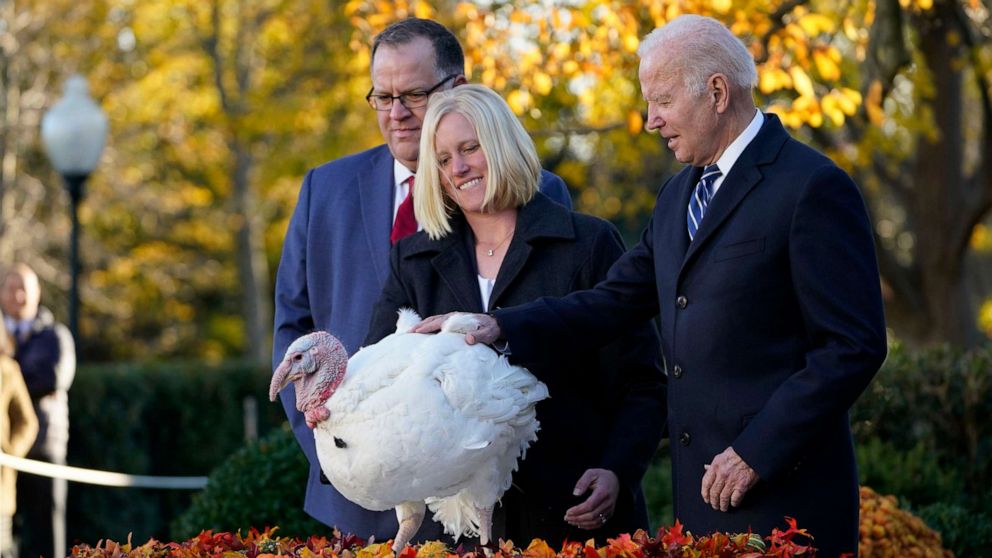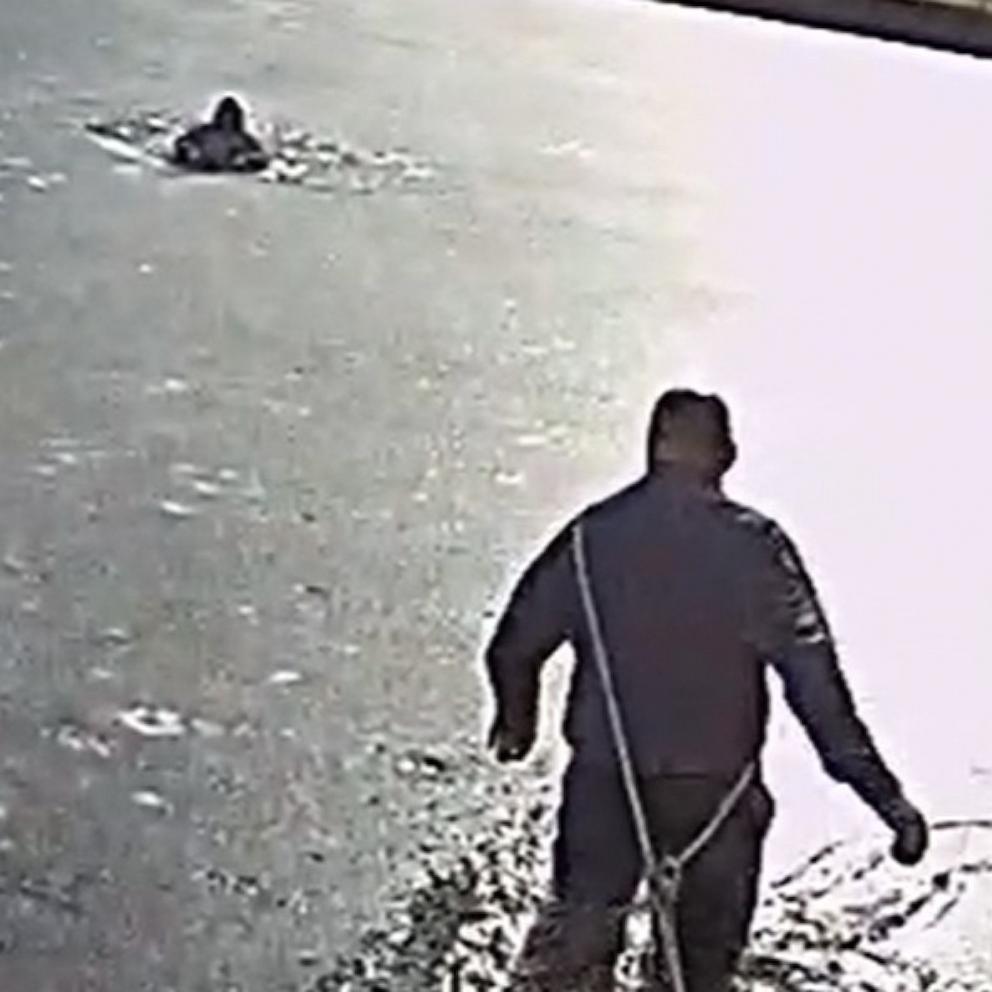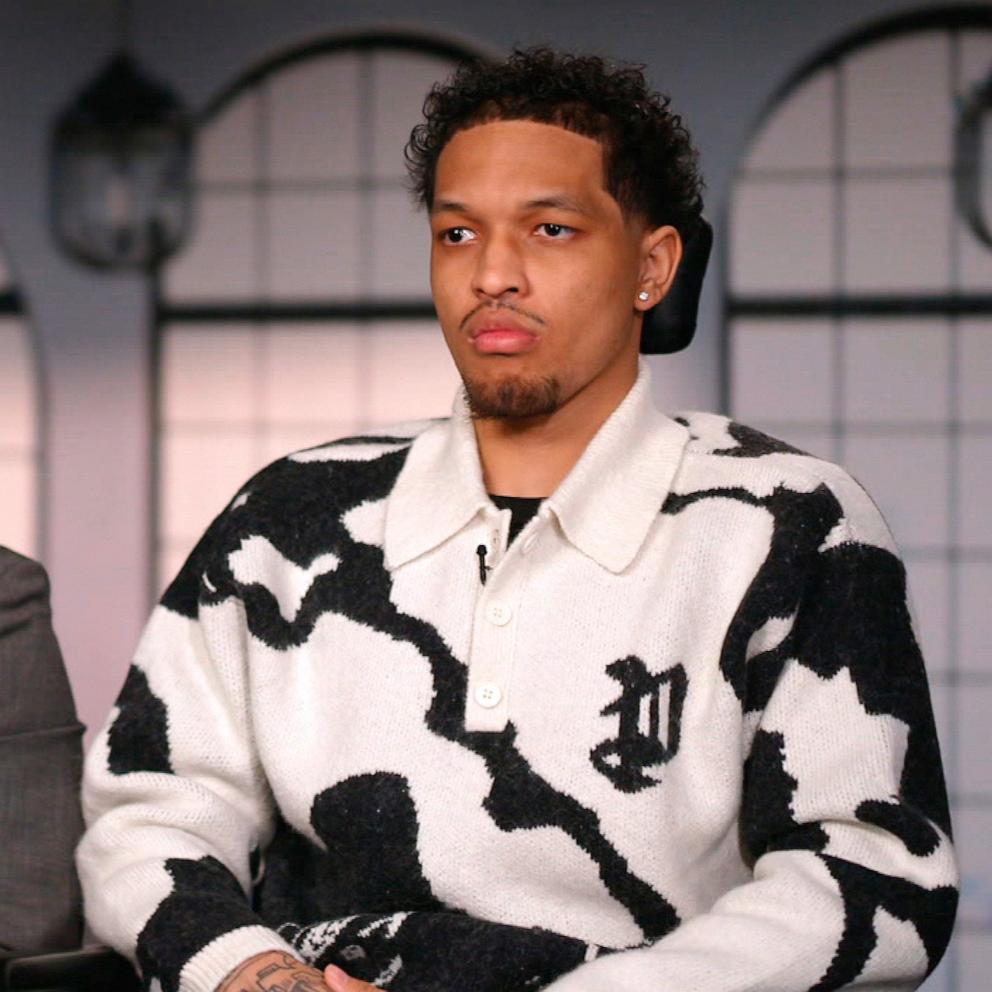Biden pardons turkeys Peanut Butter and Jelly ahead of Thanksgiving
President Joe Biden issued the first pardons of his presidency Friday to some lucky turkeys named Peanut Butter and Jelly.
In a ceremony in the White House Rose Garden, Biden spared the poultry pair from becoming Thanksgiving dinner this year.
Biden said the turkey pardoning tradition is meant to remind Americans at Thanksgiving to be grateful -- but also provides the chance to have "a little bit of fun."
"Turkey is infrastructure. Peanut Butter and Jelly are going to help build back the butterball," Biden said, in the wake of a big week for his infrastructure agenda.
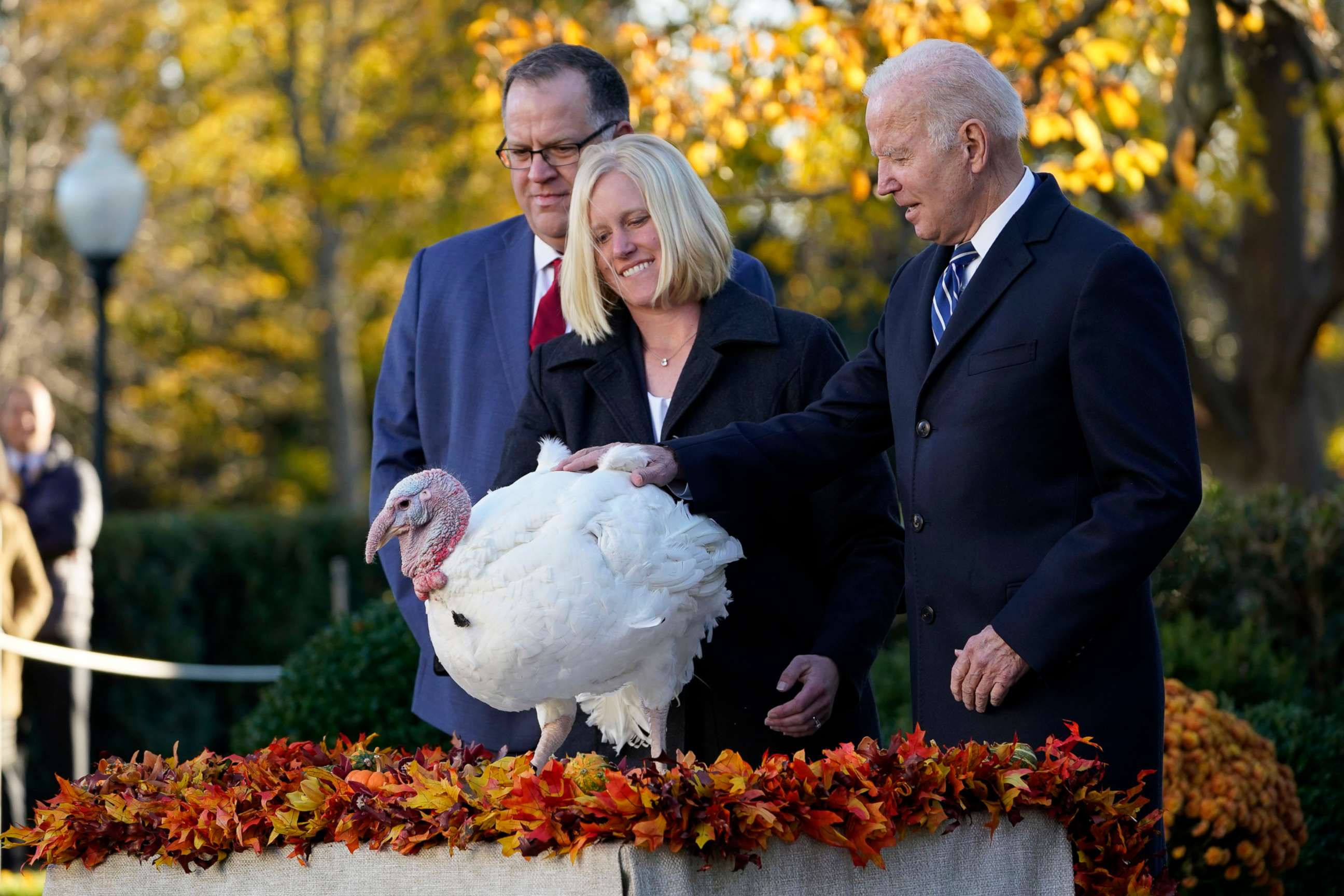
"As a University of Delaware man, I'm partial to a Blue Hen," Biden joked about that college's mascot, later adding the two turkeys would be getting their booster shots soon.
"It's important to continue traditions like this to remind us how from the darkness, there's light and hope and progress -- and that's what this year's Thanksgiving, in my view, represents," he said.
With the National Turkey Federation pledging that there are plenty of turkeys to gobble up during this year's celebration -- when more Americans will gather than in 2020 -- Biden stuck to tradition, sparing two turkeys from the dinner table this year.
The White House selected the names Peanut Butter and Jelly from a list of options submitted by students in Indiana.
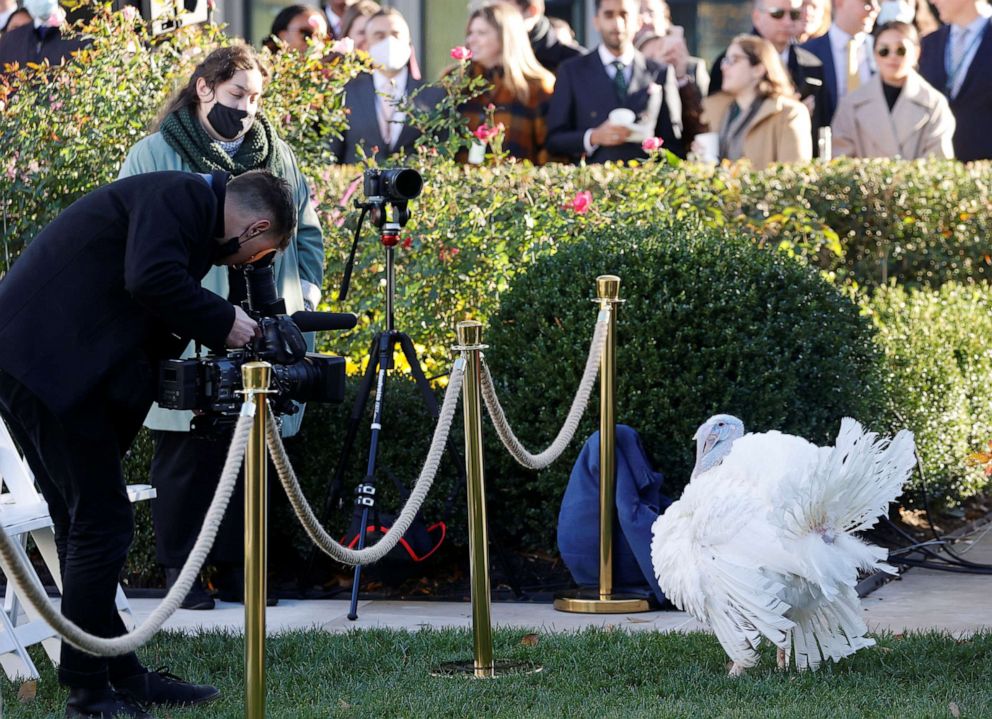
Peanut Butter, and his alternate, Jelly, traveled to the White House from Jasper, Indiana, early Wednesday, driven in a minivan outfitted as a "mini-barn" to the nation's capital.
The responsibility of deciding which farm will supply the birds each year falls to the chairman of the National Turkey Federation -- a process that Phil Seager, this year's chair, began in July, when he asked turkey grower Andrea Welp if she would accept the challenge.
"That turkey needs to kind of learn to sit, stay, and in a perfect world, kind of strut a little bit and look good for the cameras," Segar said.
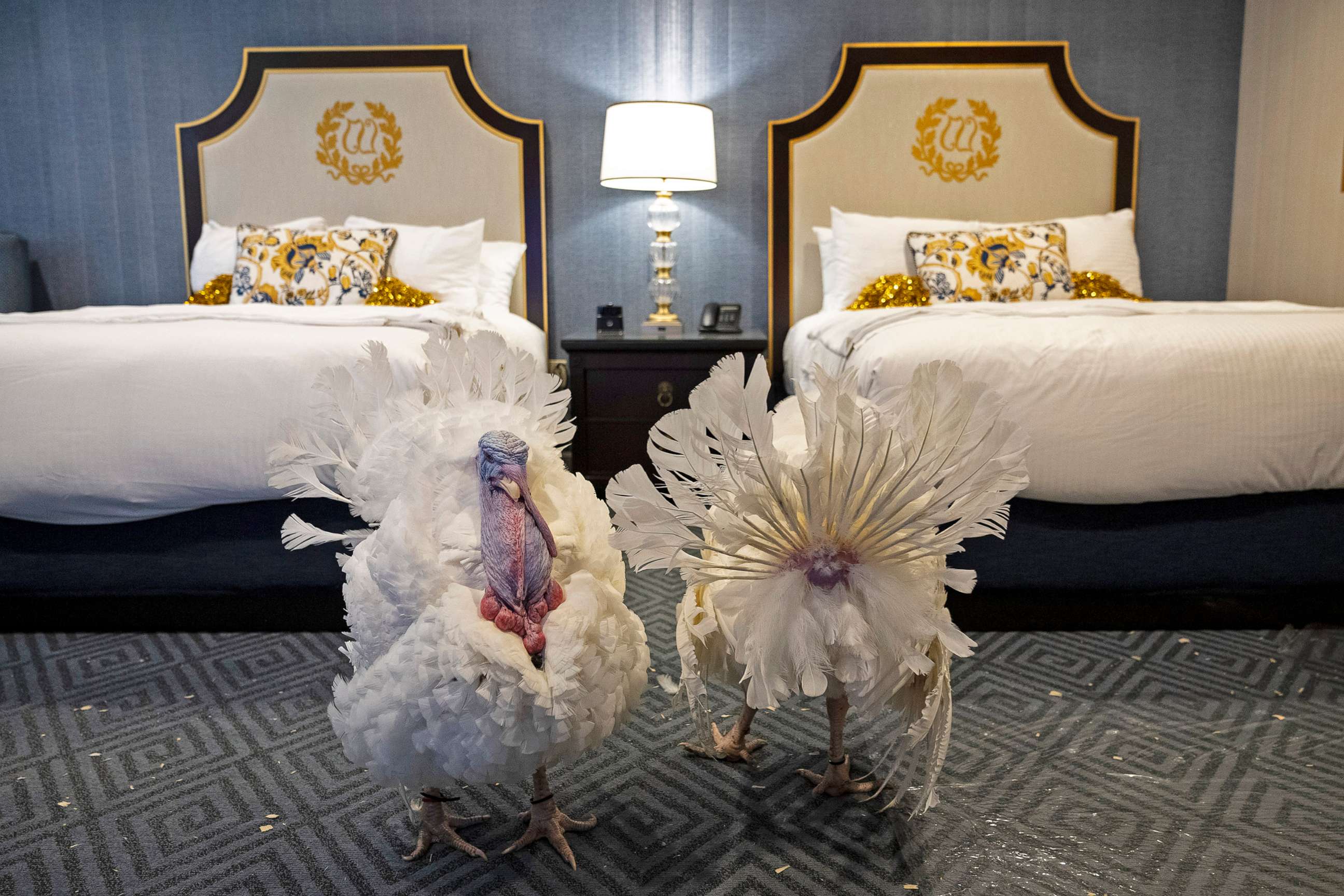
Welp worked with a small flock to try to prep them for this process in the last six weeks, with Peanut Butter and Jelly last week being deemed the turkeys with the best temperament to handle the big moment, according to Segar.
Welp, a third-generation farmer from Indiana, said raising the presidential flock has been a lot of fun for her and her family and a highlight of her career.
"With another year of uncertainties with the pandemic, this project has really been something to look forward to, and has been a joy to be able to participate in. I know the kids have really had a lot of fun raising the birds, especially dancing to loud music to get them ready for all the media attention on the big day," Welp said at a news conference Thursday, where the turkeys were first trotted out before the public.
After arriving in D.C., the two turkeys spent the day ahead of the pardoning having their feathers fluffed at the nearby five-star Willard Hotel.
"We do some extra prep to the room to make sure it's comfortable for them, putting down shavings and making sure their food and water is accessible," Beth Breeding, the spokesperson for the National Turkey Federation, told ABC News.
"We do our best to make sure that we leave the room cleaner than we even found it. We clean up afterwards and then we also work with the hotel to make sure the room is cleaned," she added.
History of Poultry Pardons
The origin of the presidential turkey pardons is a bit fuzzy. Unofficially, reports point all the way back to President Abraham Lincoln, who spared a bird from its demise at the urging of his son, Tad. However, White House Historical Association Historian Lina Mann warns the story may be more folklore than fact.
Following Lincoln's time in office, the White House was often gifted a bird for the holidays from Horace Vose, the "turkey king" of Rhode Island, sending his top turkey to 11 presidents over four decades -- though these turkeys were already slaughtered and dressed for the president's table, Mann says.
The true start of what has evolved into the current tradition has its roots in politics and dates back to the Truman presidency in 1947.
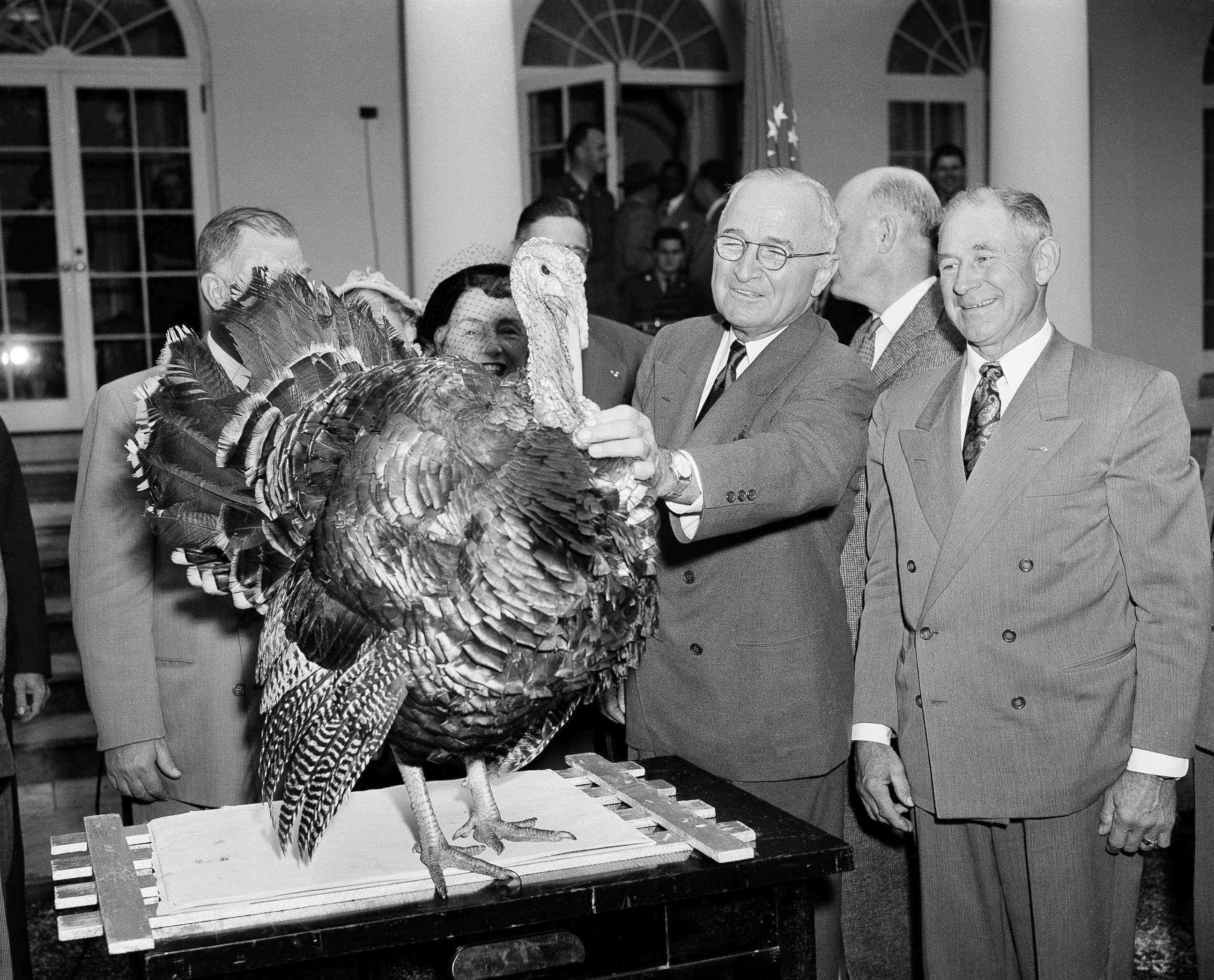
"There had been this government-led initiative called "poultry-less Thursdays" to try and conserve various foods in the aftermath of World War II," Mann said.
"But the poultry industry balked because Thursday was the day of Thanksgiving, Christmas and New Year's, and those were the big turkey holidays. So, they were outraged," she added.
After the White House was inundated with live birds sent as part of a "Hens for Harry" counterinitiative, the National Turkey Federation and the Poultry and Egg National Board presented Truman with a turkey to smooth the ruffled feathers and highlight the turkey industry -- although the turkey was not saved from the holiday fest.
Instead, President John F. Kennedy began the trend of publicly sparing a turkey given to the White House in November 1963, just days before his assassination. In the years following, Mann says the event became a bit more sporadic, with even some first ladies like Pat Nixon and Rosalynn Carter stepping in to accept the guests of honor on their husband's behalf.
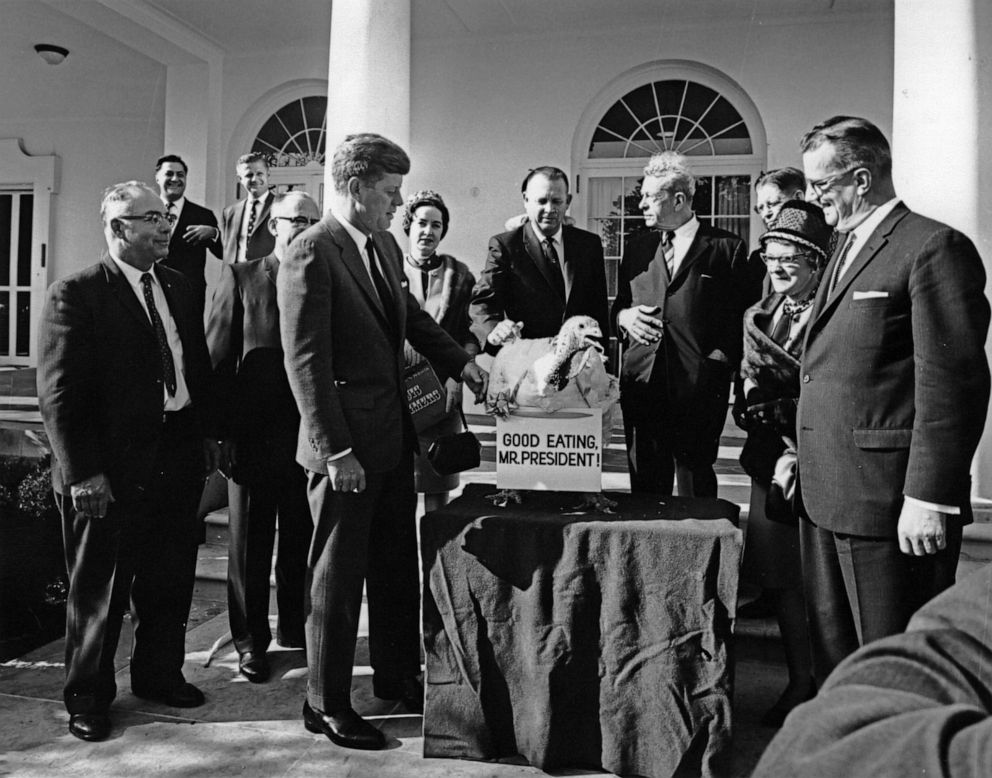
The tradition of the public sparing returned in earnest under the Reagan administration, but the official tradition of the poultry pardoning at the White House started in 1989, when President George H.W. Bush offered the first official presidential pardon.
"Let me assure you and this fine Tom Turkey that he will not end up on anyone's dinner table -- not this guy," Bush said on Nov. 17, 1989.
"He's granted a presidential pardon as of right now and ... allow him to live out his days on a children's farm not far from here," he added.
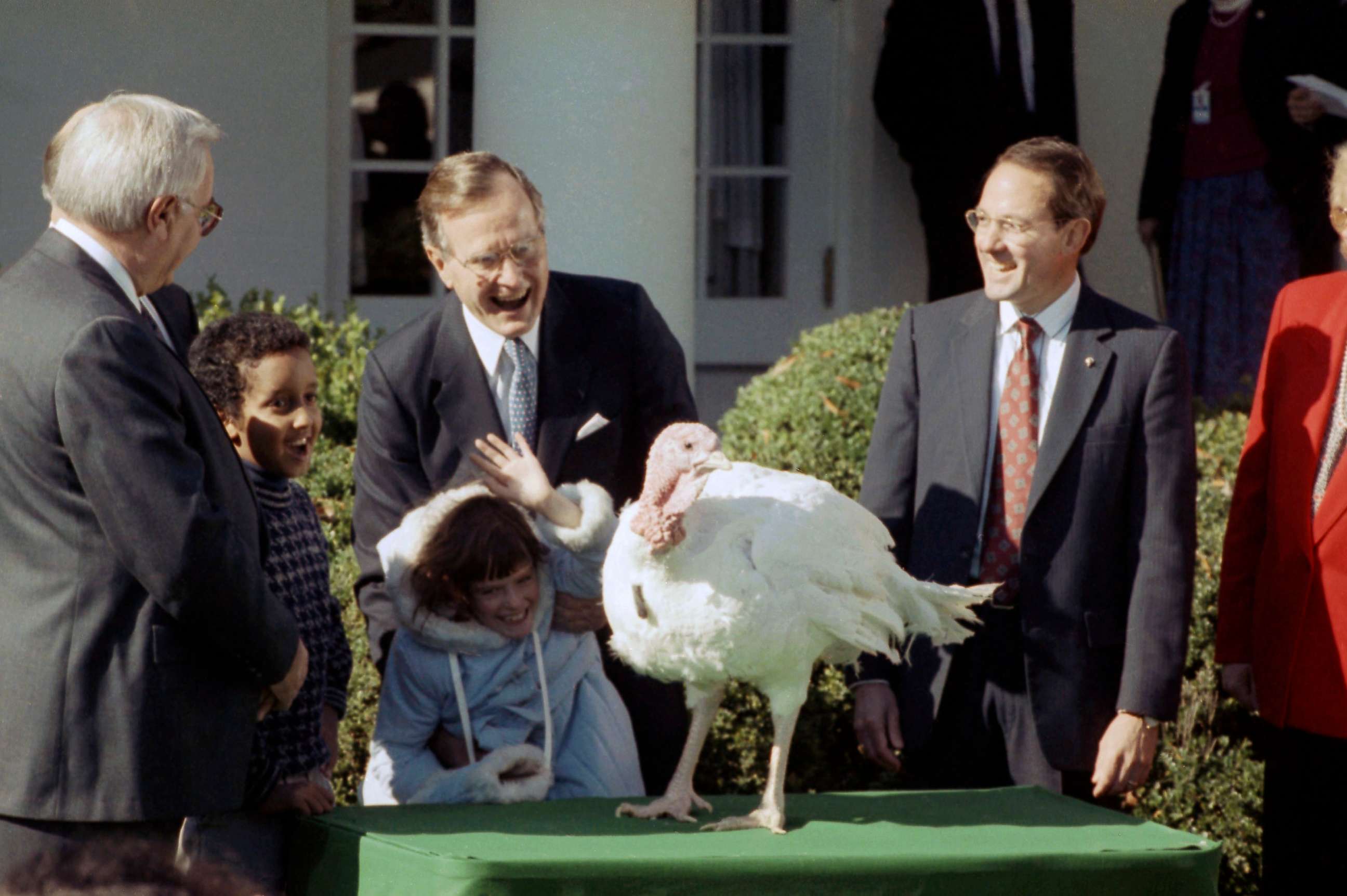
In the 32 years since, at least one lucky bird has gotten some extra gobbles each year.
After they receive the first pardons of Biden's presidency, Peanut Butter and Jelly will head back to Indiana to live out the rest of their lives at the Animal Sciences Research and Education Farm at Purdue University.
"Those folks who are going to be the next generation of leaders in our industry, so we're really excited to partner with Purdue on that and to make sure that the turkeys have a home where they're going to receive the highest quality of care," Breeding said.
